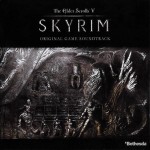Norihiko Hibino has been a long time friend of OSV. He actually was the subject of one of our first interviews on the site, which was about his and GEM Impact’s involvement with Metal Gear Solid 4: Sons of Liberty, which he felt his team didn’t get enough credit for. Well, here we are nearly two years later with Norihiko Hibino and GEM Impact once again contributing to the latest Metal Gear Solid outing, but this time, Hibino has brought along some friends from the West.
In our interview, Norihiko Hibino talks about GEM Impact’s involvement with the score, including their shift in role and the change in direction that Konami was aiming for with this installment. He also discusses bringing Jeremy Soule on board, his preference when it comes to working with Western composers, and what he has lined up in the future. While you’re waiting for the worldwide release of Metal Gear Solid: Peace Walker, check out our interview and look into picking up the official soundtrack featuring music from Konami, GEM Impact, Jeremy Soule, and Todd Haberman.
Hit the jump for the interview.
OSV: Hibino-san, thanks for speaking with us about your work on Metal Gear Solid: Peace Walker. Can you start by telling us how you were approached to work on the game, and what your role on the project was?
Hibino: In the beginning they wanted us have a lead role in bringing out the classic MGS-style sound, but the game’s development took quite long, and by the time we got involved, Konami’s in-house sound team already established their own direction for the soundtrack, so we had to go with it. Just as in the case of MGS4, the cutscenes were very long so we were brought on to help them complete the score in time.
OSV: What was yours and the team’s approach for Peace Walker? Did it differ from past Metal Gear Solid titles? Were you asked to write a specific style, or do they trust you by now to create the “MGS sound?”
Hibino: As I mentioned, we were originally asked to bring out the classic MGS-style sound, but since Peace Walker is targeted to younger fans in Japan who play games like Monster Hunter and do not appreciate the Hollywood approach, we needed to find a compromise in between. It was very difficult to get a grasp on the direction that the Konami sound team wanted to go because that was not our strength.
OSV: Were other team members at GEM Impact included this time around? What were their contributions to the game?
Hibino: As always, Izutani and Suzuki were involved. They are the core of GEM Impact now. My role is to simply help and assist them in making their music fit perfectly into the project. That includes all negotiations with directors, mixing, editing, and other things.
OSV: How many minutes of music did you, Izutani-san, and Suzuki-san provide for the game?
Hibino: I guess around 90 minutes. The ending cutscenes are extremely long.
OSV: We’ve also been told that you were responsible for bringing Jeremy Soule on board to work on some of the music of the game. How did you come to meet Jeremy Soule, and was the team at Konami receptive to him contributing to the game? How much music did he write for the game?
Hibino: While working on some other projects, I worked closely with somebody named Gloria Soto who you (Jayson) actually introduced me to. She was at Soundelux at the time, and she recommended I work with Jeremy Soule and Todd Haberman. I asked Jeremy mainly for long cutscene pieces and Todd for in-game music. It worked out great, because not only was their music great, but also because it worked to convince the Konami sound team that we must go on with big picture instead of looking at details in that final stages of production. Gloria has actually gone on to join the Max Steiner Agency, and GEM Impact has a partnership with them.
OSV: You’ve worked with a lot of composers in Japan on various arrangement projects you’ve worked on in Japan, including the Sekaiju no MeiQ II Super Arrange Version and Otomedius. Was working with Western composers different in any way?
Hibino: Working with Western composers is actually much easier for me. They are so open minded, and I feel we can talk more honestly about their interest in the project, and they helps me regardless of the circumstances. In Japan there are so many other issues I have to deal with like relationships with developers, who they are close to, etc… all of which has nothing to do with creative staff.
OSV: Do you think this kind of collaboration between the East and West will become more common? Do you think it’s important for composers in Japan to work on Western projects, and composers in the West to work on Japanese projects?
Hibino: I don’t know if it will become common in the industry because of the language barrier, but for myself, I enjoy working with Western composers a lot. I enjoy the cultural mix.
OSV: We know a single-disc soundtrack has been released in Japan containing the game’s music. How much of GEM Impact’s music is on this disc, and is Jeremy Soule’s track featured? Is this all of the game’s music?
Hibino: We have 6 tracks on it, and Jeremy’s track is also featured. However, most of his best tracks were done for the long ending cutscenes, which are not included… his score is really fantastic. I wish that track was on the CD.
OSV: We have to ask this question, unfortunately. Were you given any specific instructions to avoid using the classic Metal Gear Solid series theme that has been so controversial over the years? Do you want to address the rumors about Kojima’s response to this track at this time?
Hibino: Actually, I never even thought about that. There’s a new theme for Peace Walker that is so far from the original theme, that we just focused on that.
OSV: Do you have any final thoughts about yours and the team’s work on Metal Gear Solid: Peace Walker? Where do you think it stands among your work on the series over the years?
Hibino: Well, this is just one of many projects that I’ve worked on. All of my projects are precious to me, regardless of how big or small. Peace Walker was mentally one of the most difficult projects I’ve worked on. Our teamwork is always amazing, so I really thank our team.
OSV: What’s next for you and GEM Impact? Are there any big projects on the horizon? Can we hope to see you working with Jeremy Soule or other composers in the United States in the future?
Hibino: We just released a sleep solution combo pack consisting of a sleep supplement and our therapeutic music CD in Malaysia. This is big progress for us, because we actually tapped into a new area with our music. I feel like this is my life work, to save people suffering from depression and sleeping problems with music. This can be done not only by creating a good melody and arrangement, but also by focusing on sound engineering. This is far from “showing off” your skill. The very soft nuances of instruments really touch your heart through inaudible high frequencies. We’re actually developing speakers to deliver sound using secondary wave, not primary wave as is the case in nearly all speakers. This is the only way to deliver high-frequency sound through your body, since the human ear is a primary wave converter that can only pick up frequencies up to 20Khz. This sound therapy will be one of GEM Impact’s next major paths.
OSV: With this change in direction, can we still expect you and GEM Impact to continue working on videogame scores? Do you have any thoughts about the direction of the industry right now?
Hibino: Of course we’ll continue to work on videogames. However, platforms have changed so fast in recent years, and we need to be able to be flexible to adapt those changes. The videogame industry will collaborate with other industries more and more moving forward, like advertisement, concert business, manufacturing, etc.
OSV: Thank you for your time. Best of luck to you and the team going into the worldwide release of Peace Walker.
Tags: GEM Impact, Interviews, Jeremy Soule, Kojima Productions, Konami, Metal Gear Solid, Metal Gear Solid Peace Walker, Norihiko Hibino, Videogame









































[…] This post was mentioned on Twitter by Joe Tiger. Joe Tiger said: Original Sound Version » Blog Archive » Metal Gear Solid Peace …: While you're waiting for the worldwide release… http://bit.ly/bdOM3X […]
Hi there, i read your blog from time to time and
i own a similar one and i was just wondering if you get a lot
of spam comments? If so how do you protect against it, any plugin or anything you can advise?
I get so much lately it’s driving me insane so any support
is very much appreciated.